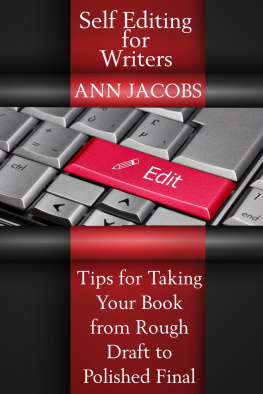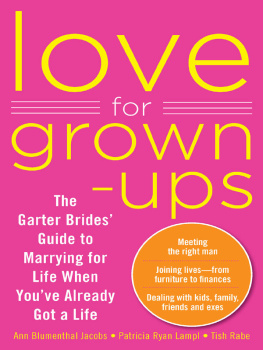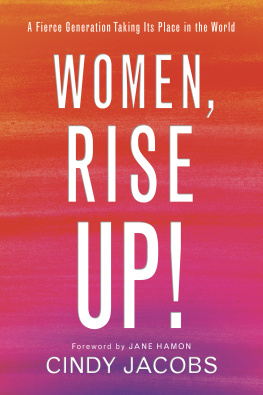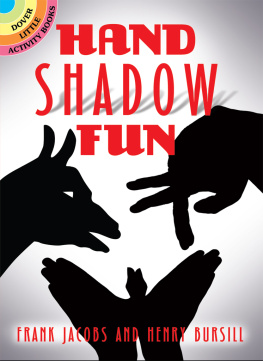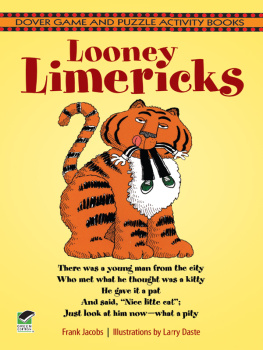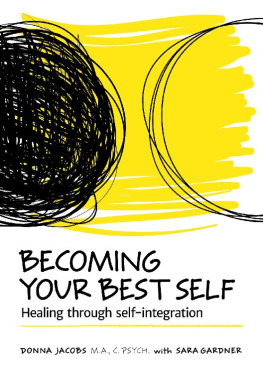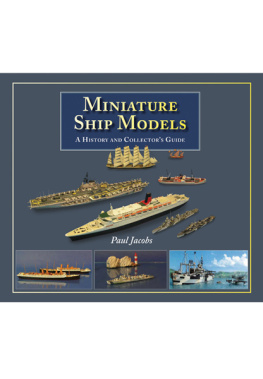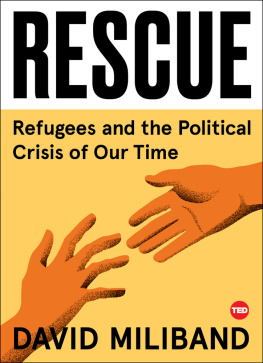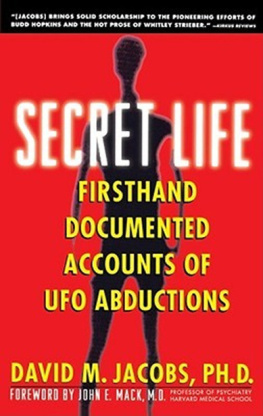Ann Jacobs - Self-Editing for Writers
Here you can read online Ann Jacobs - Self-Editing for Writers full text of the book (entire story) in english for free. Download pdf and epub, get meaning, cover and reviews about this ebook. year: 2016, publisher: Ann Jacobs, genre: Romance novel. Description of the work, (preface) as well as reviews are available. Best literature library LitArk.com created for fans of good reading and offers a wide selection of genres:
Romance novel
Science fiction
Adventure
Detective
Science
History
Home and family
Prose
Art
Politics
Computer
Non-fiction
Religion
Business
Children
Humor
Choose a favorite category and find really read worthwhile books. Enjoy immersion in the world of imagination, feel the emotions of the characters or learn something new for yourself, make an fascinating discovery.
- Book:Self-Editing for Writers
- Author:
- Publisher:Ann Jacobs
- Genre:
- Year:2016
- Rating:5 / 5
- Favourites:Add to favourites
- Your mark:
- 100
- 1
- 2
- 3
- 4
- 5
Self-Editing for Writers: summary, description and annotation
We offer to read an annotation, description, summary or preface (depends on what the author of the book "Self-Editing for Writers" wrote himself). If you haven't found the necessary information about the book — write in the comments, we will try to find it.
Ann Jacobs, multi-published author of bestselling, award-winning novels and novellas, takes you step by step through the selfl-edits you need to perform before presenting your book or novella to a publisher, a freelance editor, or the world in general.
Self-Editing for Writers — read online for free the complete book (whole text) full work
Below is the text of the book, divided by pages. System saving the place of the last page read, allows you to conveniently read the book "Self-Editing for Writers" online for free, without having to search again every time where you left off. Put a bookmark, and you can go to the page where you finished reading at any time.
Font size:
Interval:
Bookmark:

Self-Editing for Writers
By
Ann Jacobs
Tips for Taking Your Book
from Rough Draft to Polished Final
How to Take Your Rough Draft and Polish It
for Others Eyes
Ann Jacobs, multi-published author of bestselling, award-winning novels and novellas, takes you step by step through the self-edits you need to perform before presenting your book or novella to a publisher, a private line editor or the world in general.
Maximize the functionality of your word processor to help clean your manuscript while recognizing its limitations
Realize where your skills lie when it comes to grammar, punctuation, spelling and word choice, and tailor your self-editing process to account for your strengthsand mitigate your areas of weakness (in other words, where to focus your self-editing efforts to best advantage)
Learn to recognize when your manuscript is as good as you can make itbefore turning it in to be judged/contracted/presented to the end purchaser
S elf-Editing for Writers
is published by Ann Josephson
www.annjacobs.net
Copyright @ 2015 by Ann Jacobs
Cover design by Syneca, ORIGINALSYN Graphic Design
Edited by Jerald Josephson
Format by Wizards in Publishing
All rights reserved under International and Pan-American Copyright Conventions. By payment of required fees, you have been granted the nonexclusive, nontransferable right to access and read the text of this book. No part of this text may be reproduced, transmitted, downloaded, decompiled, reverse engineered, or stored in or introduced into any information storage and retrieval system, in any form or by any means, whether electronic or mechanical, now known or hereinafter invented, without the express written permission of both the copyright holder and the publisher.
The scanning, uploading and distribution of this book via the Internet or via any other means without the permission of the publisher is illegal and punishable by law. Your support of the authors rights is appreciated.
 |  |



O ne day when I was helping to proofread novellas for an anthology, I discovered that, while a writer of popular fiction doesnt need to have earned a Ph.D. in English Grammar and Composition, he or she does need to perform a few simple self-editing functions in order to create works that will aid, not detract from readers ability to become engrossed in a compelling story line.
The idea for this short, simple guide to self-editing sprang from my experience that weekend. No, I do not have a Ph.D. or even a bachelors degree in English grammar and composition, creative writing, or any closely related field. My academic credentials consist only of a four-year degree programin accounting, not any of the liberal arts. I have never worked as a paid editor of either content or writing mechanics.
So what makes me think I may be qualified to tell authors how they can polish their commercial fiction projects? First, I have sold over a hundred pieces of genre fiction including novels, novellas and short stories to a variety of publishers from major New York houses to well-known e-book publishers. I have also self-published successfully. I have written and produced many short how-to articles on various writing topics, and presented them at conferences and other gatherings of writing professionals.
More important, I have a knacksome of my critique partners will say an unfortunate onefor spotting typos, punctuation errors, comma splices, misplaced modifiers, incorrectly used words, and so on. My English teachers in middle school and high school deserve the credit.
Fortunately or unfortunately, depending on the circumstances, I happen to have the innate mindset for retaining seemingly inconsequential facts when the occasion arises. That makes me a horrible content editor because I cant see through a forest of simple mechanical errors without a voice in my head screaming, every time I spot a misspelling, wrong tense, misplaced modifier or a malapropism (e.g., a misspoken or mistyped word that has a similar sound but a totally different meaning from the intended word).
That same trait makes me a really good copyeditor. I can tell whether someones writing is technically correct, at least in the context of popular fiction, otherwise known somewhat derisively in literary circles as genre fiction.
If an author is intent on selling his or her work, he or she can use the self-editing tips Ive compiled in this book to improve the chances of that work being sold, whether to a publishing company or to end consumers via self-publishing. Readers tolerance levels toward books riddled with mechanical errors will range between zero and moderate.
Self-editing for Writers is absolutely not a substitute for the second, third, or even fourth pair of critical eyes. Nobodys work is so flawless that rough drafts should be tossed into a professional editors hand for a line editor God forbid, into a self-publishing template and on to an unsuspecting public.
By taking the preliminary step of self-editing genre fiction, a writer can vastly improve his or her chances for getting successfully published and becoming beloved by editors and readers alike.
Why Bother?
Why bother with self-editing? An authors best friends can be his editors, but every author will do himself or herself a favor by making his story as clean as it can be before passing it along to someone who may or may not see the storytelling gem thats hiding inside.
After all, most loyal friends/fans arent likely to search through the work with an eye toward finding errors. The ones who are so inclined, as I am, will often miss inconsistencies in fact and character names that morph during the course of the storybecause they are too focused on spotting and correcting mechanical errors.
Acquiring editors all want to find that next great American novel, but the degree of patience they are willing to devote to finding a diamond in the rough can vary from saint-like to virtually zip-zero-zilch, depending on such capricious factors as the editors current workload, social life or lack thereof, and so on.
Needless to say, an acquiring editor whose workload is heavyand editors workloads always are, at least according to themis more likely to look kindly upon a manuscript that doesnt promise them many tedious hours, correcting errors in rudimentary spelling, grammar and punctuation.
You see, most editors cant see through a dense forest of errors and discover the masterpiece beneath it. Its the rare manuscript that survives a first editorial impression of, Hey, this writer doesnt know the first thing about how to write. That writers storytelling talent must show through clearly. If it doesnt pass that first look, the story will quickly find its way across the office to the reject pile. When that happens, the editor will sigh with relief that she didnt allow the brief glimpse of talent she saw in the first few pages to set herself up for a long ordeal of remedial tutoring. She may allow herself a moments regret that the writer might become a wonderful storyteller if only he would master the writing craft.
Next pageFont size:
Interval:
Bookmark:
Similar books «Self-Editing for Writers»
Look at similar books to Self-Editing for Writers. We have selected literature similar in name and meaning in the hope of providing readers with more options to find new, interesting, not yet read works.
Discussion, reviews of the book Self-Editing for Writers and just readers' own opinions. Leave your comments, write what you think about the work, its meaning or the main characters. Specify what exactly you liked and what you didn't like, and why you think so.

